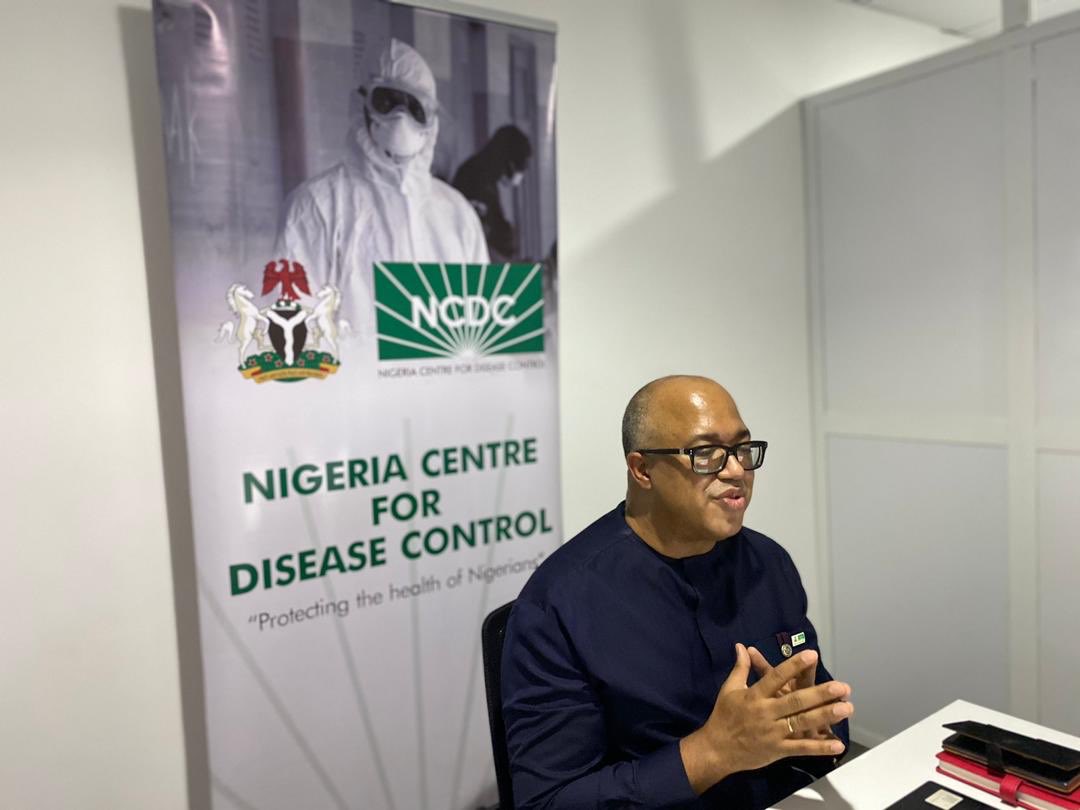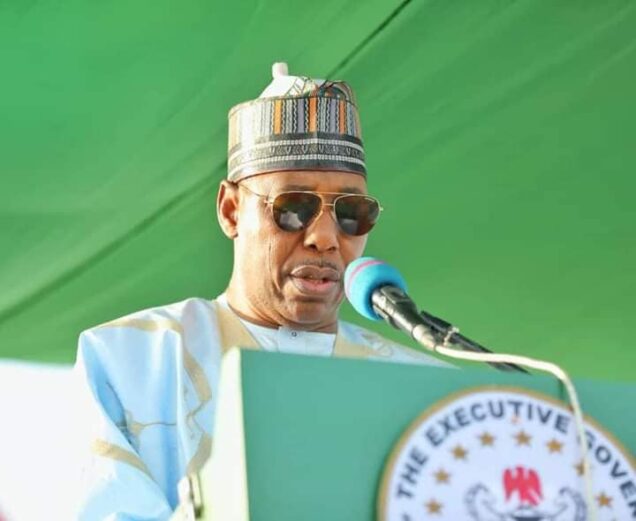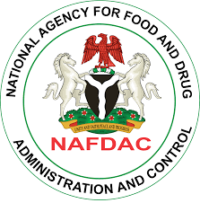Headlines
Nigeria Declares Emergency Over Monkeypox Disease

By Derrick Bangura
The Nigeria Center for Disease Control (NCDC) said it has activated a national multisectoral Emergency Operations Centre for Monkeypox (MPX-EOC) at level 2 to strengthen and coordinate ongoing response activities in-country.
It said that genomic surveillance is ongoing at NCDC’s National Reference Laboratory in Abuja and so far all of the cases have been confirmed to be caused by the West African clade Monkeypox virus.
A statement issued by the center Sunday night said that the measure was based on the report of a preliminary risk assessment done by a group of Subject Matter Experts from the NCDC, relevant government Ministries Departments Agencies, and partner agencies.
According to the statement obtained from the website of the NCDC, it said that: “0n 26th May 2022, the Nigeria Centre for Disease Control and Prevention (NCDC) activated a national multisectoral Emergency Operations Centre for Monkeypox (MPX-EOC) at level 2 to strengthen and coordinate ongoing response activities in-country while contributing to the global response. This was based on the report of a preliminary risk assessment done by a group of Subject Matter Experts from the NCDC, relevant government Ministries Departments and Agencies, and partner agencies”.
It said that, as of 29th May 2022, a total of 21 confirmed cases with one death have been reported from 9 states and the FCT – Adamawa (5), Lagos (4), Bayelsa (2), Delta (2), Cross River (2), FCT (2), Kano (2), Imo (1), Rivers (1). The death was reported in a 40-year-old patient who had underlying co-morbidity and was on immunosuppressive medications. NCDC said that genomic surveillance is ongoing at NCDC’s National Reference Laboratory in Abuja and so far all of the cases have been confirmed to be caused by the West African clade Monkeypox virus. The May 2022 Monkeypox situation report can be assessed.
Among the 21 cases reported in 2022 so far, there has been no evidence of any new or unusual transmission of the virus, nor changes in its clinical manifestation documented (including symptoms, profile, and virulence).
Before the activation of the MPX-EOC, a multi-agency Technical Working Group (TWG) coordinated at the NCDC led Nigeria’s efforts to improve the detection, prevention, and control of Monkeypox. Nigeria’s national surveillance system, the Surveillance Outbreak Response Management and Analysis System (SORMAS) were first deployed in response to the 2017 Monkeypox outbreak to improve the timeliness and completeness of case reporting, as well as facilitate the overall response.
In addition, it said that the pilot project informed the nationwide scale-up of FORMAS to enable real-time reporting of surveillance data for prompt public health response to infectious disease outbreaks including COVID-19.
“Following the detection of the index case on September 22, 2017, and the effective containment of the 2017 outbreak in Nigeria, the NCDC through the Monkeypox TWG worked on various interventions to gain a better understanding of the epidemiology of the virus to inform preparedness and response in-country.
“The TWG coordinated the development of national Monkeypox guidelines, capacity building of healthcare workers and surveillance officers on case detection, sample collection, laboratory testing for confirmation and sequencing of the virus at NCDC’s National Reference Laboratory, and intensified public awareness through risk communication.
“Furthermore, a national One-health risk surveillance and information sharing (NOHRSIS) group has been inaugurated to facilitate timely information exchange on all prioritized zoonotic diseases. NOHRSIS will also strengthen the collaborative efforts of the One health/IHR Unit at the Point of Entry to intensify surveillance for the disease in animals as well as ensure minimal contact with suspected animals.
In addition, the One Health Animal Surveillance team including the Federal Ministry of Agriculture and Rural Development, the Federal Ministry of Environment, the National Veterinary Research Institute, and partners commenced operational research on Monkeypox virus prevalence in small mammals at the human-animal interface in October 2018. This research has been completed in 7 states with a planned rollout in all other states to commence soon.
According to NCDC, although Nigeria’s risk of exposure to the Monkeypox virus is high based on the recent risk assessment conducted at NCDC, the current situation in-country and globally has shown no significant threat to life or the community that can result in severe disease or high case fatality rate. The EOC will continue to monitor the evolving situation to inform public health action accordingly.
Symptoms of monkeypox include sudden fever, headache, body pain, weakness, sore throat, enlargement of glands (lymph nodes) in the neck and under the jaw, followed by the appearance of a rash (often solid or fluid-filled at the onset) on the face, palms, soles of the feet, genitals and other parts of the body.
The NCDC emphasizes that members of the public should remain aware of the risk of Monkeypox and adhere to public health safety measures – specifically, report to the nearest health facility if you notice the known signs and symptoms of the disease. Healthcare workers are to maintain a high index of suspicion for Monkeypox and report any suspected case to the relevant state Epidemiology Team for prompt public health intervention including sampling for confirmatory testing.
Headlines
Noble Ladies Champion Women’s Financial Independence at Grand Inauguration in Abuja

Women from diverse backgrounds across Nigeria and beyond gathered at the Art and Culture Auditorium, Abuja, for the inauguration and convention of the Noble Ladies Association. The event, led by the association’s Founder and “visionary and polished Queen Mother,” Mrs. Margaret Chigozie Mkpuma, was a colourful display of feminine elegance, empowerment, and ambition.
The highly anticipated gathering, attended by over 700 members and counting, reflected the association’s mission to help women realise their potential while shifting mindsets away from dependency and over-glamorization of the ‘white collar job.’ According to the group, progress can be better achieved through innovation and creativity. “When a woman is able to earn and blossom on her own she has no reason to look at herself as a second fiddle,” the association stated.
One of the association’s standout initiatives is its women-only investment platform, which currently offers a minimum entry of ₦100,000 with a return of ₦130,000 over 30 days—an interest rate of 30 percent. Some members invest as much as ₦1 million, enjoying the same return rate. Mrs. Mkpuma explained that the scheme focuses on women because “women bear the greater brunt of poverty” and the platform seeks “to offer equity in the absence of economic equality.”
Education is also central to the Noble Ladies’ mission, regardless of age. Their mantra, “start again from where you stopped,” encourages women to return to school or upgrade their skills at any stage in life. The association believes that financial stability is vital in protecting women from cultural practices that dispossess widows of their late husbands’ assets, while also enabling them to raise morally and socially grounded families.
Founded on the vision of enhancing women’s skills and achieving financial stability, the association rests on a value system that discourages pity and promotes purpose. “You have a purpose and you build on that purpose to achieve great potentials and emancipation,” Mrs. Mkpuma said.
A criminologist by training and entrepreneur by practice, she cautions against idleness while waiting for formal employment. “There are billions in the informal and non-formal sectors waiting to be made,” she said, rejecting the “new normal of begging” and urging people to “be more introspective to find their purpose in life and hold on to it.”
Mrs. Mkpuma’s management style keeps members actively engaged, focusing on vocational skills and training to prepare them for competitive markets. She is exploring “innovative integration of uncommon technologies” and is already in talks with international franchises to invest in Nigeria, with Noble Ladies as first beneficiaries.
The association’s core values include mutual respect, innovation, forward-thinking, equal opportunity, and financial emancipation. With plans underway to establish a secretariat in the heart of Abuja, the group aims to expand its impact.
The event drew high-profile guests, including former Inspector General of Police, Mike Okiro, and a host of VIPs, marking a significant milestone in the association’s drive for women’s empowerment.
Headlines
NEPZA, FCT agree to create world-class FTZ environment

The Nigeria Export Processing Zones Authority (NEPZA) has stepped in to resolve the dispute between the Federal Capital Territory Administration and the Abuja Technology Village (ATV), a licensed Free Trade Zone, over the potential revocation of the zone’s land title.
Dr. Olufemi Ogunyemi, the Managing Director of NEPZA, urged ATV operators and investors to withdraw the lawsuit filed against the FCT administration immediately to facilitate a roundtable negotiation.
Dr. Ogunyemi delivered the charge during a courtesy visit to the Minister of the Federal Capital Territory, Barrister Nyesom Wike, on Thursday in Abuja.
You will recall that the ATV operators responded to the revocation notice issued by the FCT administration with a lawsuit.
Dr. Ogunyemi stated that the continued support for the growth of the Free Trade Zones Scheme would benefit the nation’s economy and the FCT’s development, emphasizing that the FCT administration recognized the scheme’s potential to accelerate industrialisation.
Dr. Ogunyemi, also the Chief Executive Officer of NEPZA, expressed his delight at the steps taken by the FCT minister to expand the economic frontier of the FCT through the proposed Abuja City Walk (ACW) project.
Dr. Ogunyemi further explained that the Authority was preparing to assess all the 63 licensed Free Trade Zones across the country with the view to vetting their functionality and contributions to the nation’s Foreign Direct Investment and export drives.
“I have come to discuss with His Excellency, the Minister of the Federal Capital Territory on the importance of supporting the ATV to succeed while also promoting the development of the Abuja City Walk project. We must work together to achieve this for the good of our nation,” he said.
On his part, the FCT Minister reiterated his unflinching determination to work towards President Bola Ahmed Tinubu’s Renewed Hope Agenda by bringing FDI to the FCT.
“We must fulfil Mr. President’s promises regarding industrialization, trade, and investment. In this context, the FCT will collaborate with NEPZA to review the future of ATV, a zone that was sponsored and supported by the FCT administration,” Wike said.
Barrister Wike also said that efforts were underway to fast-track the industrialisation process of the territory with the construction of the Abuja City Walk.
The minister further said the Abuja City Walk project was planned to cover over 200 hectares in the Abuja Technology Village corridor along Airport Road.
According to him, the business ecosystem aimed to create a lively, mixed-use urban center with residential, commercial, retail, hospitality, medical, and institutional facilities.
He added that the ACW would turn out to be a high-definition and world-class project that would give this administration’s Renewed Hope Agenda true meaning in the North-Central Region of the country.
Barrister Wike also indicated his continued pursuit of land and property owners who failed to fulfil their obligations to the FCT in his determination to develop the territory.
Headlines
Benue IDPs block highway, demand return to ancestral homes

Vehicular movement along the Yelwata axis of the Benue–Nasarawa highway was brought to a standstill on Wednesday as Internally Displaced Persons, IDPs, staged a protest, demanding immediate return to their ancestral homes.
The protesters, believed to be victims of persistent attacks by suspected herdsmen, blocked both lanes of the busy highway for several hours, chanting “We want to go back home”.
The protest caused disruption, leaving hundreds of motorists and passengers stranded.
Eyewitnesses said the displaced persons, many of whom have spent years in overcrowded IDP camps, are expressing deep frustration over the government’s delay in restoring security to their communities.
“We have suffered enough. We want to return to our homes and farms,” one of the protesters told reporters at the scene.
Security personnel were reportedly deployed to monitor the situation and prevent any escalation, though tensions remained high as of press time.
Efforts to reach the Benue State Emergency Management Agency, SEMA, and other relevant authorities for comment were unsuccessful.
-

 Headlines4 years ago
Headlines4 years agoFacebook, Instagram Temporarily Allow Posts on Ukraine War Calling for Violence Against Invading Russians or Putin’s Death
-

 Headlines4 years ago
Headlines4 years agoNigeria, Other West African Countries Facing Worst Food Crisis in 10 Years, Aid Groups Say
-

 Foreign4 years ago
Foreign4 years agoNew York Consulate installs machines for 10-year passport
-

 News1 year ago
News1 year agoZero Trust Architecture in a Remote World: Securing the New Normal
-

 Entertainment3 years ago
Entertainment3 years agoPhyna emerges winner of Big Brother Naija Season 7
-

 Headlines2 years ago
Headlines2 years agoNigeria Customs modernisation project to check extortion of traders
-

 Entertainment2 years ago
Entertainment2 years agoMovie download platform, Netnaija, announces closure
-

 Economy2 years ago
Economy2 years agoWe generated N30.2 bn revenue in three months – Kano NCS Comptroller














